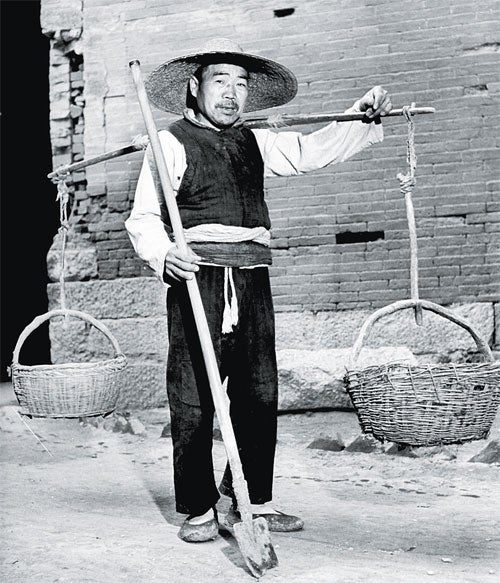Urban gardener, Cleve West: Waste not, want not

"So how exactly do you go about using night soil at your allotment?" said Rick, a dour but thoughtful Yorkshireman who occasionally gets mistaken for the actor Sean Bean. A man of few words, his standard response ("everyone looks like Sean Bean up here") usually comes after a long, wistful pause. Gasping for breath, and looking down a steep slope to Red Tarn from Swirral Edge (near Ullswater) I told him I'd be in a better state to answer him properly when we got to the top of Helvellyn.
"The thing is," he went on, "I've taken on an allotment and it seems a shame to waste, well ... waste." I nod in agreement and, gesturing to the summit try to concentrate on the matter in hand, but Rick's on a roll.
"It's clay," he muses almost to himself now, "but I think it's a happy soil." What's confusing is that Rick, normally one of the quieter members of the group, has decided to pipe up at this joyfully peaceful moment, whereas Chris, a gobby rookie who hasn't shut-up since we left London but is now gripped with acrophobia, is completely silent for once. Instead of savouring the moment Rick has obviously realised that this is the only time he's going to be able get a word in edgeways: "I remember you saying you were thinking about doing it at your allotment."
He's right, I have been thinking about it but apart from adding diluted urine to the compost heap, (which does help speed up decomposition), I've been hesitant to use "night soil" largely because it involves a bit of organisation and diligence with the whole process if it is to be performed safely.
Night soil is a euphemism for human faeces, once collected (at night, which of course gave it its name) by gong farmers during the 16th century, and later honeypot men in the 19th century. It has been used most regularly by Chinese and Indian cultures in the past and was also used in the UK as recently as the Second World War when fertilisers for home-grown food were scarce. Today, as we question our environmental record and what we can do to improve it, the use of night soil in our gardens remains, as far as I can make out, an untapped resource largely because we are too squeamish.
Pathogens in improperly or incompletely composted human faeces can be hazardous, so too can chemicals that find their way into our sewage systems. However, organic waste recyclers such as Terra-Ecosystems (www.terraecosystems.com), have for some years been using sewage sludge, together with woodchip and other green material, to make safe compost to use in our gardens. Home waste recycling can also reduce the hazards so long as the right processes are adopted and the sewage is given adequate time to decompose completely (about a year in the UK). As a safeguard, fertiliser made from home waste should only be used on fruit crops and not salads where there is the risk of direct contact with the fertilser.
The all-singing and dancing self-contained composting toilets (www.composting toilet.org) have a large compartment below the toilet with a sophisticated aeration system. Other, smaller systems as advocated by Joseph Jenkins in his book The Humane Handbook serves only to prepare the waste for a secondary composting in a regular compost heap. Jenkins, who coined the neologism "humanure", advocates using all household and sanitary waste, believing that rather than being a risk it can actually improve public health and safety. Not only will you reap the benefits in the garden, you will also be saving around 75,000 gallons of water a year by not having to flush.
I would have relayed this to Rick when we reached the top of Helvellyn but Chris, buoyant from surviving "the most dangerous thing I've ever done!" was in Lord of the Rings mode, pestering him to blow the Horn of Gondor in celebration. Experienced fell-walkers will know that Swirral Edge on a fine dry day is not really difficult at all ... now if we'd taken a short cut back to Glenridding via Striding Edge in a snow storm Chris would almost certainly have been able to take the concept of self-contained composting to a much more personal dimension.
Subscribe to Independent Premium to bookmark this article
Want to bookmark your favourite articles and stories to read or reference later? Start your Independent Premium subscription today.

Join our commenting forum
Join thought-provoking conversations, follow other Independent readers and see their replies
Comments